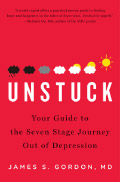
As a member of NAMI FaithNet, which “supports faith communities in mental illness outreach, education, and advocacy,” I receive their newsletters. A recent issue featured an interview by Gale Bataille and Bill Berkowitz with Jay Mahler, activist and founder of a grassroots movement which became The California Mental Health and Spirituality Initiative, and Rev. Laura Mancuso, Director of the initiative on the relationship between spirituality and mental health, religion and psychology. You can get to the original interview by visiting ReligionDispatches.org or clicking here. Below are some excerpts:
Historically, religion and mental health issues have had an uneasy relationship–and it goes both ways: people with mental illness have long faced stigma in religious communities, and mental health professionals have, for the most part, been suspicious of religion.
Mental health professionals are often trained to bracket out a patient’s religion in the name of professional boundaries, and have been encouraged to consider religion in the context of a medical model that can view spiritual beliefs as potential psychiatric symptoms. As psychologist David Lukoff explains:
This tendency, representing a form of cultural insensitivity, can be traced back to the roots of psychoanalysis as well as behaviorism and cognitive therapy. Freud saw religion as “a universal obsessional neurosis,” Skinner ignored religious experience, and Ellis viewed religion as equivalent to irrational thinking and emotional disturbance. Similarly, spiritual experiences have been viewed as evidence of psychopathology.
But the understanding of the role of religion and spirituality in mental health is changing. The California Mental Health and Spirituality Initiative (which grew out of a grassroots movement founded by activist and advocate Jay Mahler and other consumers, family members, and service providers) was established in June 2008 at the Center for Multicultural Development at the California Institute for Mental Health to advocate for the “inclusion of spirituality as a potential resource in mental health recovery and wellness.”
Question: Why is a spirituality and mental health initiative important?
Laura Mancuso: Spirituality is an untapped resource for recovery from serious mental health issues. That’s the most important reason. We know that spirituality and religion can play a role in health and wellness for everyone. But the public mental health system has been hesitant to venture into this realm. With good reason, actually, because we don’t want to run afoul of the separation of church and state. But a lack of clear understanding has too often led practitioners to avoid the entire subject of spirituality and religion with their clients, which is a shame. The initiative is needed to provide clear information about how to venture into this territory, and how to do it effectively, legally, and ethically.
Question: How would you define spirituality in relationship to individuals and communities mental health needs and concerns?
Laura Mancuso: I wouldn’t distinguish mental health from other health needs. As an individual who lives with chronic illness myself, I know that long-term illness can lead to a spiritual crisis, and that my own preferred spiritual practices go a long way in helping me cope with day-to-day situations. Why would it be any different for people with mental health conditions? In fact, I would say it’s even more important because when your mind and your emotions are affected, it can raise existential questions like, “Why me? Have I done something wrong to cause this to happen to me? Can I still rely on myself? What will the future hold for me?”
Question: Can you briefly describe the historical relationship between mental illness and organized religion?
Laura Mancuso: Very complicated! Some religious groups have taken it upon themselves to provide compassionate care to people with mental illness. The Quakers initiated “moral treatment” of people who had been languishing in asylums as early as the 1700s. In modern times, Rev. Susan Gregg-Schroeder coordinates “Mental Health Ministries” within the California-Pacific Conference of the United Methodist Church; the fact that a major national religious group supports a full-time ministry dedicated to erasing the stigma of mental illness in faith communities is fantastic.
And NAMI, the national advocacy group for people with mental illness and their families, has established “FaithNet,” devoted to outreach to religious organizations. These programs are needed because people with serious mental health issues may be helped by religious organizations, but they may also face stigma and discrimination there. Most challenging is when they receive advice from their faith community that conflicts with what their health care providers tell them; for example, taking medications or engaging in psychotherapy, interventions that have been proven to speed up recovery. For the most part, though, organized religion in the United States reflects the views of the country as a whole, which typically includes significant misinformation about the prevalence, causes, and prognosis associated with having a mental illness.
Question: It appears that spirituality is very important to people who have lived with mental illness. What role does it play in recovery and wellness?
Jay Mahler: The experience of “madness” can include a profound experience of connection and spirituality; oneness with nature; and the meaning and purpose of life. The mental health system has viewed this spiritual aspect of madness as delusional and as only a manifestation of the mental illness; denying the profound and potentially positive effects of this experience. The experience of madness can also lead to a painful and heightened awareness of the hand you were dealt in your life and the inequities of society. For many people with mental health issues, spirituality is key to understanding this experience. It is essential in their journey of recovery. Also faith communities have provided a sense of belonging and welcome to me, and to others who have been marginalized and experienced stigma and discrimination resulting from the public’s fear of persons with psychiatric diagnoses.
To get to the interview, click here.
To read more Beyond Blue, go to http://blog.beliefnet.com/beyondblue, and to get to Group Beyond Blue, a support group at Beliefnet Community, click here.
To subscribe to “Beyond Blue” click here.
![]()

